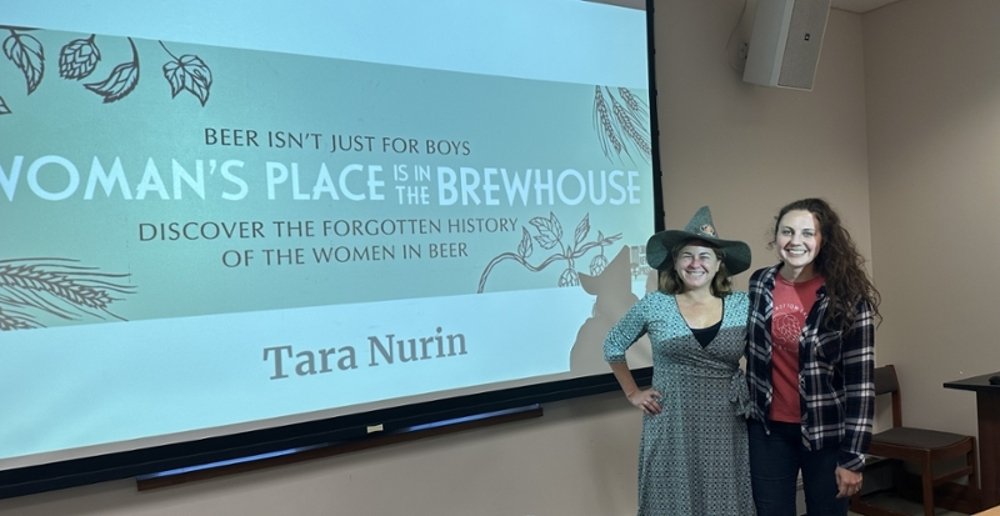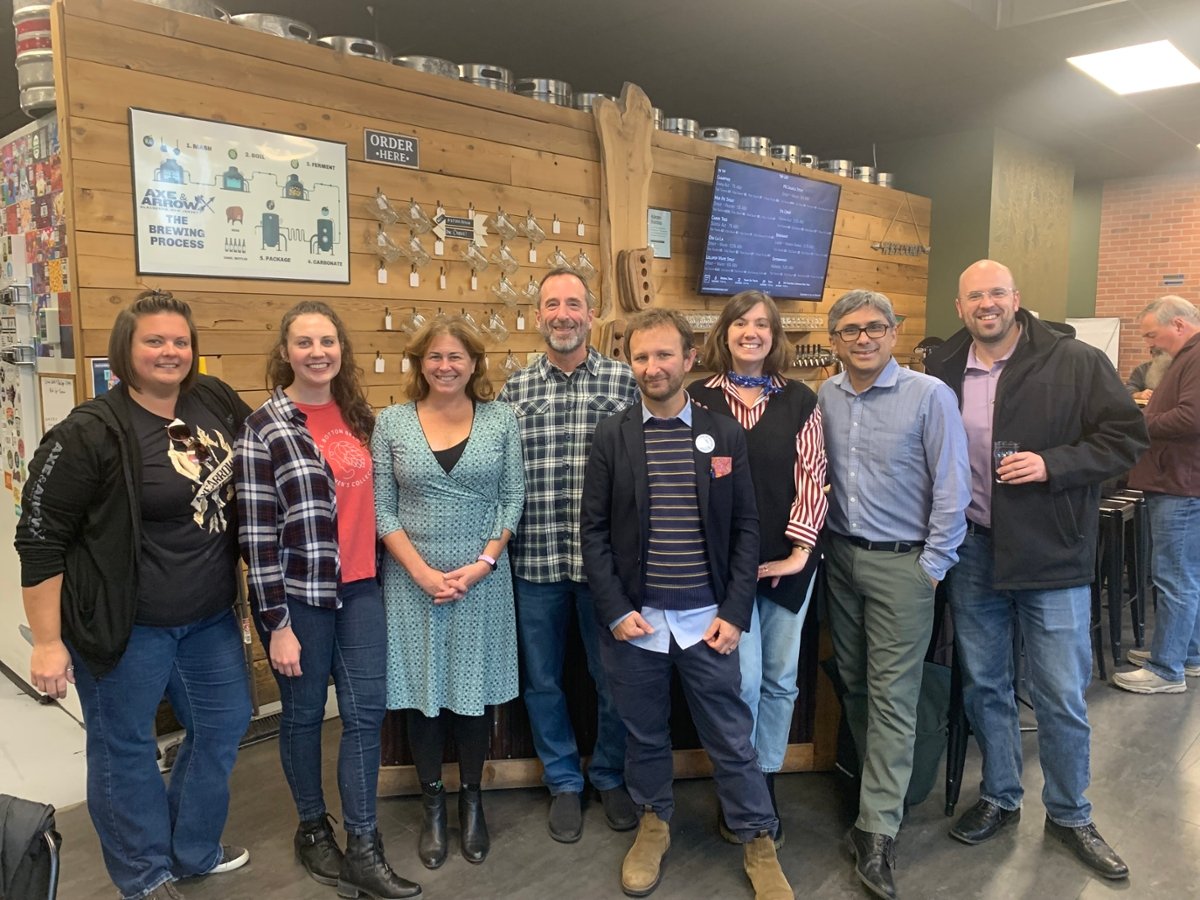A Woman's Place is in the Brewhouse
A Woman's Place is in the Brewhouse
A Woman's Place is in the Brewhouse! Author Tara Nurin visits Geography of Beer by Dr. Ashley York, Lecturer

On November 2, 2023, the Geography of Beer course was honored to host local New Jersey resident and award-winning author, Tara Nurin, to speak about her book “A Woman’s Place is in the Brewhouse.”
Tara Nurin is a freelance journalist who trains her eyes, ears and typing fingers on the places where food and beverage intersects with business, culture, history, sustainability and identity. Often using liquid lubricants as her mirror to reflect broader societal trends, she files her stories from some of the world’s most colorful breweries, bars and boardrooms and appears as a frequent presenter on broadcasts and live panels. Passionate about promoting women’s challenges and achievements, she published her first book, on the history of women in beer entitled “A Woman’s Place Is in the Brewhouse: A Forgotten History of Alewives, Brewsters, Witches, and CEOs” in September 2021. It won first prize from the North American Guild of Beer Writers. She has also volunteered with the Pink Boots Society non-profit for women in the alcoholic beverage industry for more than a decade and founded Beer for Babes, New Jersey’s original beer education group for women. To learn more about Tara, click here, or to buy her book, click here.

Dr. Ashley York stands with Author Tara Nurin wearing a witch hat while she talks about the historical relationship between witches and women brewing beer.
In her visit to Geography of Beer, Tara and students read different portions of her book aloud, interspersed with her own personal stories and group conversation about observations we have made about women (and other traditionally marginalized groups) being excluded from the beer industry, despite having a long history of playing an important role in brewing. For example, throughout history around the world, you almost exclusively find goddesses of beer, brewing, or fermentation. In fact, the oldest known recipe for beer comes from the Hymn to Ninkasi, a song written to praise the ancient Sumerian goddess of beer. You can find similar goddesses around the world, from China, to ancient Mesoamerica, and all the way to Finland.
So why were there more goddesses of beer? Almost up until the industrial revolution when technology was advanced enough, brewing beer was done on a very small scale, essentially in every household kitchen, and was a task more along the lines of cooking - a woman’s task! It was even a recognized job in some cultures, for example, chiceras in Meso and South America, were women whose job it was to make the corn-based beverage chicha, by chewing the corn to begin the fermentation and then spitting it out. Tara also spent some time on the debate of alewives or brewsters (female brewers of beer) being labeled as witches during the Middle Ages/Renaissance, and the role this label played in women’s progressive and forceful movement out of the industry. But as she discusses, while there may be some similarities between witches and brewsters, the technology at the time was beginning to advance, and the demand for beer was growing beyond the scale of cooking in a household kitchen. More capital was now needed to meet the demand of the industry, and capital was almost exclusively in the hands of men at this point in history. With this change in the scale of the beer industry, you see women’s role continue to disappear. In the craft beer industry today, we still see the impacts of these exclusionary histories, with most of the craft breweries in the United States being white-male-owned, most of the head brewmasters being white males, and most of the beer consumers being white males. For a quick summary on women’s role in beer history, check out this article by Tara from craftBeer&Brewing.

Rowan faculty and our two guests enjoy beer at local brewery, Axe and Arrow.From left to right, Axe and Arrow owner Kyrstle Lockman, Dr. Ashley York of Geography, author Tara Nurin, Professor Rich Federman of Geography, Dr. Lou Thomas of Geography, Professor Megan Bucknam of Geography, Associate Dean of the School of Earth and Environment Dr. Eddie Guerra, and Dr. Matt Farber of Biology.
After Tara’s great book reading and discussion, she joined students and other Rowan faculty at the local Glassboro Brewery, Axe and Arrow, and continued the conversation of women in beer with owner Krystle Lockman, who is also the founder of the New Jersey chapter of the Pink Boots Society.
This guest speaking event was also the first of many collaborations between the School of Earth and Environment and its new association with the College of Science and Math. Prior to joining Geography of Beer, Tara was also able to join Biological and Biomedical Sciences professor Dr. Matt Farber’s class on Microbiology of Beer and Beverage.
For more information on the Geography of Beer course, please feel free to contact Dr. Ashley York, yorka@rowan.edu.